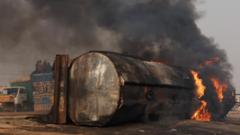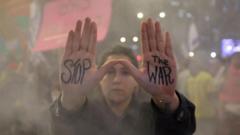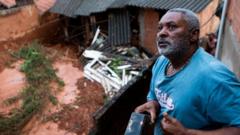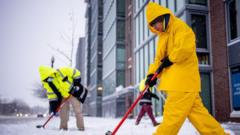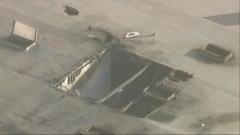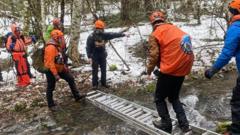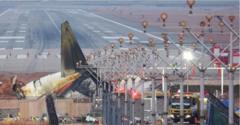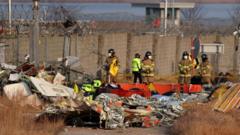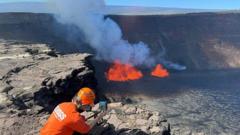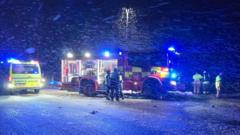A string of fatal poisonings linked to methanol-laced drinks in Laos has raised alarm about the ongoing safety issues associated with bootleg alcohol in Southeast Asia. Despite warnings, many tourists remain unaware of the risks involved.
Tragic Deaths Shine Spotlight on Southeast Asia's Methanol Crisis
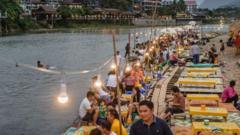
Tragic Deaths Shine Spotlight on Southeast Asia's Methanol Crisis
Recent methanol poisoning incidents in Laos prompt urgent calls for awareness and regulation in the region's alcohol industry.
In a tragic series of events, five tourists, including nationals from the UK, Australia, the US, and Denmark, have died from suspected methanol poisoning following their visit to Vang Vieng, a popular tourist destination in Laos. An additional Australian woman remains critically ill as investigations continue into the consumption of tainted drinks that contained methanol, a colorless and odorless toxic substance often found in illicit alcohol.
Methanol poisoning is a known epidemic in Southeast Asia, particularly affecting impoverished regions along the Mekong River. Local authorities and international health organizations have warned that methanol can easily be mixed into drinks, often without the knowledge of consumers, leading to delayed symptoms that can take up to 24 hours to appear. Victims typically experience nausea, vomiting, and abdominal pain, followed by severe respiratory issues if not treated promptly.
According to the medical charity Médecins Sans Frontières (MSF), Asia holds the highest prevalence of methanol poisoning globally. Indonesia has recorded the most incidents in the last two decades due to rampant bootleg liquor production. In Laos, tourist hotspots like Vang Vieng thrive on a bustling bar scene but face significant challenges due to limited law enforcement and insufficient regulation of food and beverage safety.
Local observers point to a concerning trend where unscrupulous producers opt for cheaper methanol over ethanol to enhance the potency of their products. A Western diplomat emphasized that while the situation is concerning, it is not the result of bar owners deliberately seeking to harm tourists but rather a reflection of lax industry standards and practices.
In the aftermath of this latest tragedy, calls for a high-profile education campaign regarding the risks of bootleg alcohol and methanol poisoning are intensifying. Several Western governments have updated travel advisories concerning alcohol consumption in Southeast Asia. Nonetheless, experts like Colin Ahearn, who runs a Facebook page warning against drinking spirits in Bali, argue that the "horrific event" might only serve as a momentary wake-up call, with long-lasting solutions still needed.
As the region grapples with these challenges, it remains imperative for travelers to exercise extreme caution when consuming alcohol, especially in areas known for their nightlife and lack of regulatory oversight.



